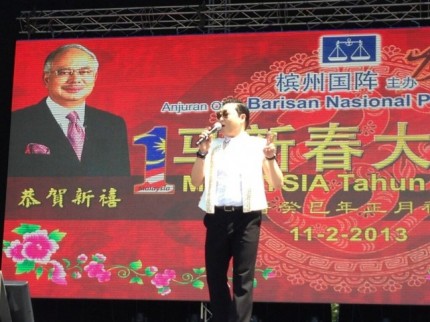The United Malays National Organisation (UMNO), in coalition with partners in the Barisan Nasional (BN), has held office since independence in 1957. Its record of unbroken rule exceeds any other government in power today.
In 2008 the BN lost its two thirds majority, and in 2013 lost even more seats and for the first time since 1969 lost the popular vote. It gained only 47.4% of the national vote, though because of weighting in favour of rural electorates this meant 60% of parliamentary seats. Can UMNO rely on this rural weighting to maintain its position as support for the BN continues to decline? Can it remain credible when its non-Malay allies struggle to gain popular support? What strategies might it pursue to retain its dominance?
The opposition is an unlikely coalition of Islamists and secularists, socialists and capitalists, conservatives and progressives, Muslims and non-Muslims. In recent elections they won 51.8% of the total vote, and 40% of parliamentary seats. Can they maintain unity and continue to make inroads against the ruling coalition?
What will be new forms of political contestation post GE13? Will Sabah and Sarawak remain a ‘fixed deposit’ for the BN? Has political polarisation reduced the possibility of a more deliberative, open and democratic system? Might new political actors emerge to challenge the options presented by the government and opposition? What will the new rules of engagement be?
Date: 20th August, 2013
Time: 7.30-9.00pm
Venue: Bruce Hall (Dining Hall)
Host: Asia Pacific Learning Community and College of Asia and the Pacific
The round table will be chaired by Catharine McGrath, ABC Asia Editor.
The panelists are:
Rueban Balasubramaniam – “Has the Malaysian Federal Constitution become irrelevant?”
Bridget Welsh – “Citizen Politics: Representation and Malaysians.”
Meredith Weiss – “New forms of political engagement in Malaysia.”
AB Shamsul – “BN+PR=BR: Is reconciliation totally impossible?”
Clive Kessler – “Malays on top, now and forever – will this still work?”
A little about the panelists and the chair.
Bridget Welsh is Associate Professor of Political Science at Singapore Management University. Bridget has published extensively on Southeast Asian politics including Reflections: The Mahathir Years (2004), Legacy of Engagement in Southeast Asia (2008), Impressions of the Goh Chok Tong Years in Singapore (2009), Transformations: Abdullah Badawi’s Years in Malaysia (2013). She is currently working on a number of single-authored books that include Embracing Democracy: How Malaysians Think about Politics, Democracy Denied: GE13 in Malaysia, Reformasi Elections in Malaysia and Gender Politics and Elections in Southeast Asia.
Meredith Weiss is Associate Professor of Political Science at the State University of New York at Albany and currently Visiting Associate Professor of Southeast Asia Studies at the Johns Hopkins University School of Advanced International Studies. Meredith’s research is in the field of comparative politics, focusing on Southeast Asia, especially Malaysia and Singapore. Her major publications include Protest and Possibilities: Civil Society and Coalitions for Political Change in Malaysia and Student Activism in Malaysia: Crucible, Mirror, Sideshow, as well as a number of edited or co-edited volumes. Her major projects at present are a collaborate study of “money politics” in four Southeast Asian democracies (including Malaysia) and research into issues of collective identity and mobilisation in Southeast Asia.
Clive Kessler is Emeritus Professor of Sociology and Anthropology at the University of New South Wales. His main work is in the culture, society, religion and politics of the Malay world, especially Malaysia. He also pursues research into the social, historical and civilizational relations between the faith communities of Judaism, Christianity and Islam. His more general work centres on the question of modernity and its varying cultural forms and diverse civilizational expressions.
Shamsul Amri Baharuddin is Distinguished Professor and the founding director of the Institute of Ethnic Studies at Universiti Kebangsaan Malaysia. He has published widely on development studies, Islamic modernity, colonialism and knowledge production, nations and nationalism, identity formation and popular culture. He is also sought after by the mass media as an analyst on Malaysian current affairs. In 2008 he won the Laureate Academic Prize of the prestigious Fukuoka Asian Cultural Prize, Japan.
Rueban Balasubramaniam is Associate Professor at the Department of Law and Legal Studies at Carleton University. His current research is in legal philosophy, exploring how the rule of law is constitutive of legitimate political rule. He is currently writing about issues of methodology in legal philosophy, where he argues that an appropriate methodology must capture the idea that the rule of law is a moral yet distinctly legal ideal that may relate to other moral values yet does not collapse into them. In addition, he is also doing research that examines the relationship between the rule of law and anti-terrorism measures like detention without trial.
Catherine McGrath is the Australian Broadcasting Corporation’s (ABC) Asia Editor. Previously, Catherine served as the ABC’s South East Asia correspondent and has covered federal politics as chief political reporter for ABC Radio and political editor of Australia Network.
The Round table is hosted by the Asia Pacific Learning Community and the College of Asia and the Pacific.
 Facebook
Facebook  Twitter
Twitter  Soundcloud
Soundcloud  Youtube
Youtube  Rss
Rss 